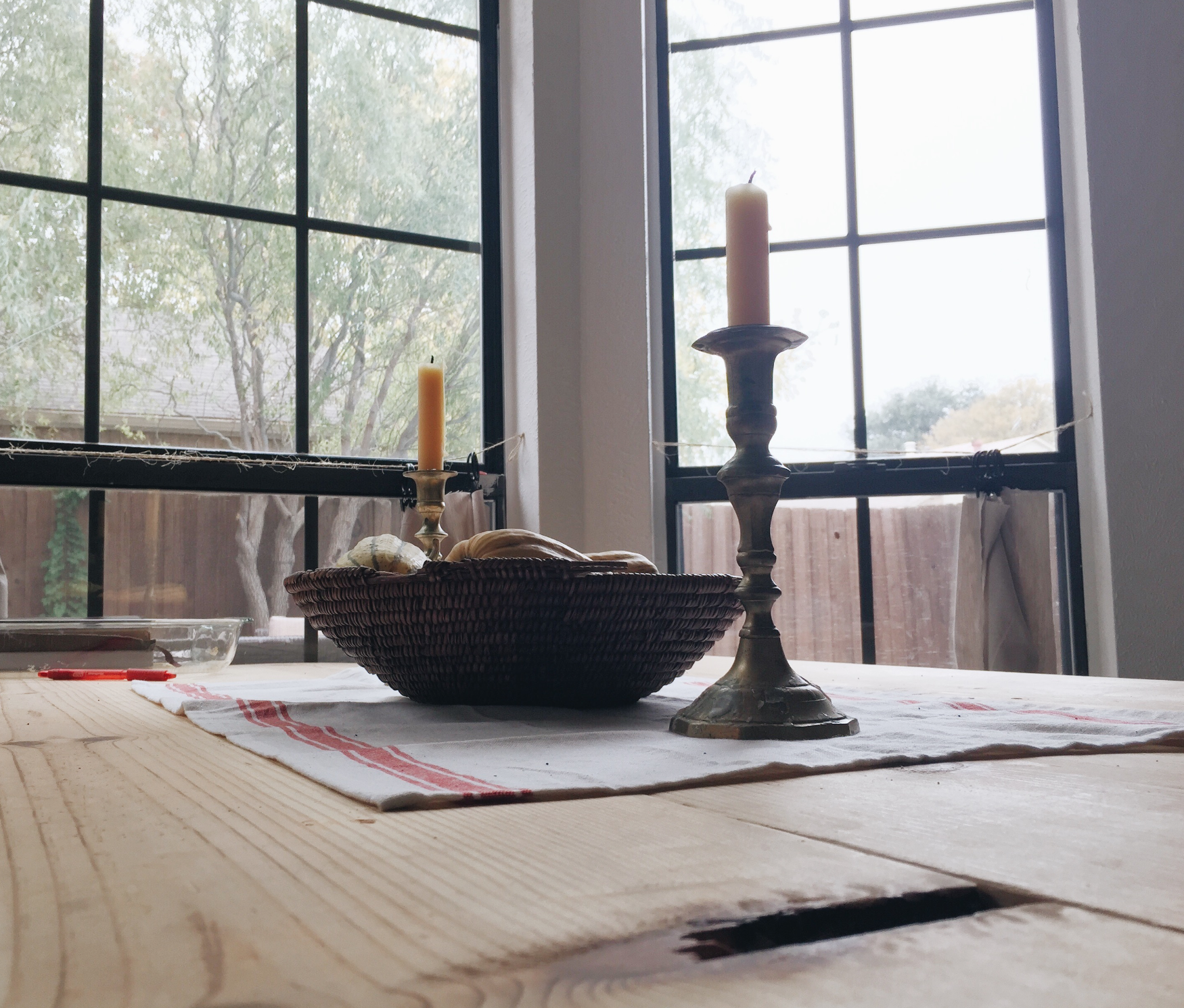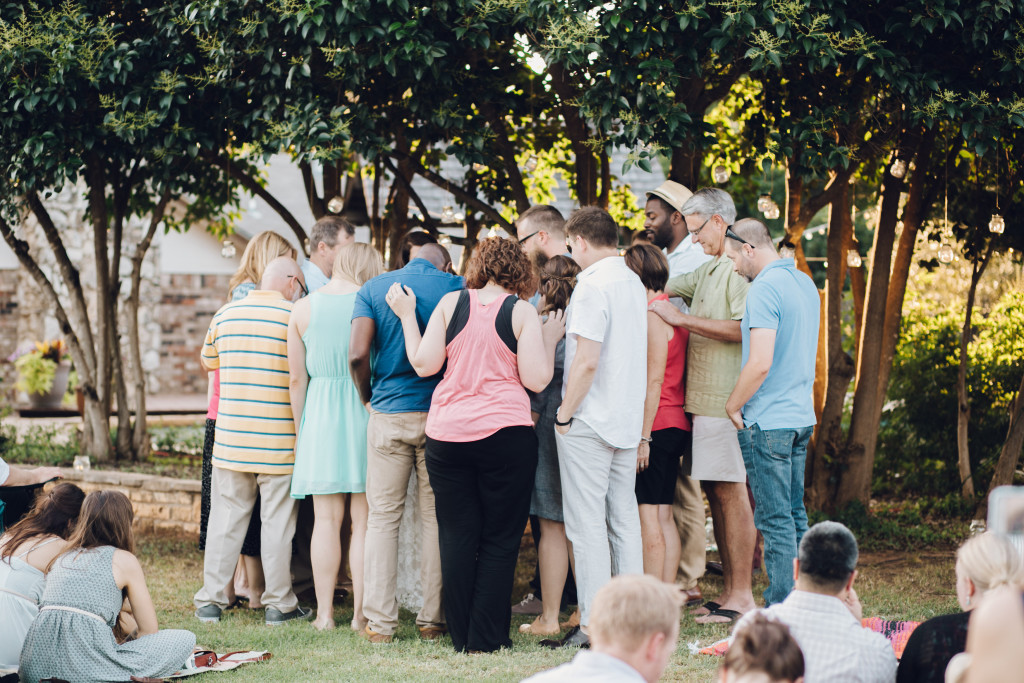Seven Ways We Fail and Get Back Up Again
The first time the word sin is mentioned in Scripture is not at the moment when sin entered the world, but the moment before the fracturing of two brothers, Cain and Abel. After Cain brought his offering to the Lord (which, for whatever reason known to them and not clearly to us, displeased the Lord), the Lord said, "Why are you angry, and why has your face fallen? If you do well, will you not be accepted? And if you do not do well, sin is crouching at the door. Its desire is contrary to you, but you must rule over it” (Genesis 4).
That phrase, "Its desire is contrary for you," has always stuck to me like an autumn burr on a wool sweater.
There are so many things in our lives pressing us back, crouching at our doors, slinking in unforeseen gaps and spaces, taking up room, both invited and uninvited. Sin is not a passive agent, but if we are passive, it can rule over us. There are so many areas in my life where I am the passive agent regarding sin. I say something smartly but intended to get my point across: sin. I leave something unfinished in hopes someone else will notice and do it: sin. I cite needs and desires as my primary motivator: sin. I avoid dealing with my emotions, letting them build and bubble over: sin. Wherever I look, sin is crouching at my door.
A pastor at our church once said, "We don't get over our sin by constantly looking at our sin, we get over it by looking at the work of Jesus on the cross." This sounds really good, but if we don't make the cross both deeply personal and deeply practical, it can be difficult to see the ramifications of the work of Jesus in all the small places where sin reigns supreme in our lives. We can apply the gospel to the Big Sins, but overlook its power over the "little foxes that ruin the vineyards" (SoS 2:15).
Nate and I have been talking about some work God did in us as singles and now as a married couple, ways we have recognized the power of sin to creep in and the ways it has ruled us (and still does in so many ways), and exercises we do to press back and bounce our eyes to the cross. These are not grand theological gestures, they are small things designed to teach us restraint, remind us to submit, to fear God, of the bounty of God, and of the joy found completely in him.
Over the next few weeks I'll be doing a series of posts on seven ways we try to rule over the crouching presence of sin in our home. I'll expound on our methods for engaging the gospel in these areas of our lives, the ways we fail, and our hope for the Church more and more.
None of these things are done perfectly. In none of these areas have we arrived. And in every one of these areas we are prone to wander, to fail, and to forget. One of the best blessings of the gospel, I think, is the fact that it never changes. When I fail, forget, and wander—the cross and the empty tomb never change. The point is not to do these things perfectly, but to actually let the imperfection of my doing them remind me of how much I need Jesus every single day. We fail often and regularly at all of these, but:
1. We choose reading, writing, and talking instead of screen-time in order to engage and flourish as flesh and blood humans.
2. We practice not a work/life balance, but a work/rest model in order to see God as our Creator, Redeemer, and Joy.
3. We eat whole foods, in-season, and locally if possible, in order to care for our bodies and the earth well.
4. We practice hospitality not as an event or social engagement, but as a way to sacrifice ourselves, our time, and our energy, for the flourishing of others.
5. We choose the way of peace instead of violence and listening over making ourselves heard, as a way to remind ourselves we are not omnipotent, omnipresent, or omniscient.
6. We eat meals together in order to press back against the culture of busy, quick, fast, and convenient.
7. We endeavor to live using restraint in our finances, not so we can build bigger savings accounts or retirement funds, but so we can serve others more freely today.
I often get questions about the way we practice Sabbath as New Testament Christians or why we choose to have a young man living with us or what made us decide to not have a television, and more, and my hope is that in writing more on these specific intents, I will be able to answer those questions more fully. None of these things are without theological purpose and very real—sometimes painful—sacrifice. That's on purpose. Not because we're masochists, but because we're Christians living in a hostile-to-the-way-of-Jesus-environment. It's never been easier, more convenient to not carry the cross and follow Him. So how, in 2017, in the suburbs, without children, with paying jobs, with every gadget available to us, do we say, "No, sin, you will not rule over us. We're already the children of a King."
The series will be tagged: Seven Ways so if you're looking for the whole thing at some point, just click on that tag at the bottom of the page.










 Before I got married and was asked to write on singleness every other day, one of the questions I'd be asked often was, "How can married women encourage their unmarried sisters." I thought a lot about this question because I think it's a good one, but also because it can be easy to forget some pains of singleness once the vows are said.
In order for us to truly mourn with those who mourn and rejoice with those who rejoice, it takes a great amount of empathy—entering into the sadness, fears, and joys of our sisters and brothers in Christ. What is unfortunate, though, is that the question is rarely flipped the other way around. "How can unmarried women encourage their married sisters?" I think this is perhaps due to an incorrect view that those who are unmarried are somehow lesser than and therefore need greater amounts of encouragement than those who are married. This simply isn't true. What is true is that an unmarried person has distinct and perfect gifts designed by God for their season, and a married person has distinct and perfect gifts designed by God for theirs. No one is less than, or has less than—though it's hard to believe that as an unmarried person who longs for what your sisters and brothers have through their spouses.
Before I got married and was asked to write on singleness every other day, one of the questions I'd be asked often was, "How can married women encourage their unmarried sisters." I thought a lot about this question because I think it's a good one, but also because it can be easy to forget some pains of singleness once the vows are said.
In order for us to truly mourn with those who mourn and rejoice with those who rejoice, it takes a great amount of empathy—entering into the sadness, fears, and joys of our sisters and brothers in Christ. What is unfortunate, though, is that the question is rarely flipped the other way around. "How can unmarried women encourage their married sisters?" I think this is perhaps due to an incorrect view that those who are unmarried are somehow lesser than and therefore need greater amounts of encouragement than those who are married. This simply isn't true. What is true is that an unmarried person has distinct and perfect gifts designed by God for their season, and a married person has distinct and perfect gifts designed by God for theirs. No one is less than, or has less than—though it's hard to believe that as an unmarried person who longs for what your sisters and brothers have through their spouses.

